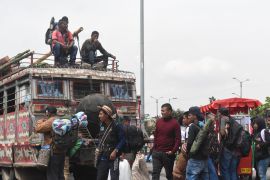
The Kenyan government has volunteered to lead a multinational mission in Haiti, but the decision has raised questions and criticism in the East African country, where critics consider it dangerous and unconstitutional.
On Monday October 2, the UN Security Council approved the operation in the impoverished Caribbean country, plagued by gang violence that controls most of the capital Port-au-Prince. For the past year, the Haitian government has been calling for a Mission to restore order. But its appeal for help has long gone unanswered by the international community, scalded by past experiences in the country.
An unexpected solution arrived in July 2023. Kenya said it was ready to send 1,000 police officers, an offer welcomed by the United States and other countries reluctant to send their own troops to this risky terrain. Monday’s green light from the UN raised many questions in Kenya.
“What is their mission in Haiti?” asks Emiliano Kipkorir Tonui, a retired brigadier general who notably oversaw the deployment of Kenyan peacekeepers in Liberia, East Timor and the former Yugoslavia. “Kenyans need to be informed. Leaders are accountable to the people”, he declares.
The government has not yet presented its project to Parliament, as required by the Constitution before any troops are sent abroad. On Wednesday October 4, Parliament announced that it had summoned the Chief of Police, Japhet Koome, and the Minister of the Interior, Kithure Kindiki, to clarify the contours of this mission, described as unconstitutional by some legal experts.
President William Ruto called it a “mission for humanity” in a country he said had been ravaged by colonialism, and Foreign Minister Alfred Mutua said Kenya was doing “God’s will” by helping the descendants of African slaves in Haiti.
